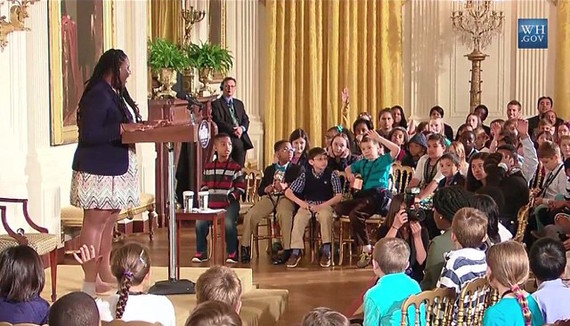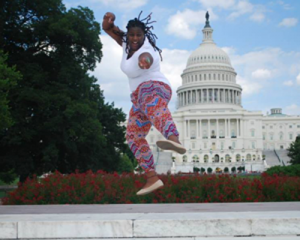America's Promise Alliance published a new study this fall, Don't Quit On Me: What Young People Who Left School Say About the Power of Relationships, and invited young people to share their stories about the power of relationships. Amnoni's story is the second post in a series by young people about the ways adults and peers can help more young people graduate from high school.
by: Amnoni Myers
When did trauma become a theme in my life?
I suppose it started at birth, when my mother abandoned me and left me in the hands of a relative who often locked me and my siblings in the basement with little food, water or light. By the time I was six years old, I had already experienced sexual abuse, emotional abuse and physical violence.
When I finally entered foster care, I hoped that things would be different. But my many foster mothers seemed more interested in the economic benefits than caring for me. One foster mother chain-locked the fridge to prevent me from eating, a psychological trigger that took me back to my relative's basement.
Family members, foster mothers and even guidance counselors often told me that I was destined to end up just like my parents -- in and out of jail, no high school diploma, living a life of drug abuse, poverty and crime.
I desperately wanted a different life for myself, but I felt like I had nowhere to go, no one I could turn to, little support to help me break the vicious cycle. By the time I got to high school, I felt like I was in survival mode, just trying to get by.
Besides Graffiti, What Do You Do For Fun?
Things changed senior year. One day, I was in the stairwell, drawing graffiti on the walls, when one of the new teachers, a younger guy named Mr. Downing, walked in and saw me. I ran from him as quickly as I could, hoping I wouldn't get caught since he was new and didn't know my name.
When he finally caught up to me, he brought me into the principal's office and sat me down. I was so nervous. This would have been my fourth suspension of the year, and I knew that there would have been serious consequences waiting for me at home.
But to my surprise, my high school principal, Dr. Ferrer, and Mr. Downing just started asking me questions. "What do you see yourself doing in the future?" they asked. "What sorts of things do you like to read? What do you do for fun (besides graffiti)?"
They seemed to genuinely care about who I was. They wanted to get to know me, saw my potential, and decided to invest.
I still had to do community service, but Mr. Downing and Dr. Ferrer became my champions. They supported me every step of the way through my senior year, providing tutoring for the classes in which I struggled and helping me write college essays.
When my guidance counselor tried to prevent me from applying to the colleges of my dreams, Dr. Ferrer was the first person to walk with me down to her office. She demanded that I apply to whatever college I wanted, she said, because I was just as capable as my peers.
I had never been cared for or supported like that in my life. It's because of this support that I have been able to successfully graduate from college and have had many opportunities to advocate on behalf of foster youth.
From Foster Care to Capitol Hill
Just last summer, I interned with the Congressional Coalition on Adoption Institute, working in Senator Grassley's office on his child welfare portfolio. I wrote a policy report on the importance of training foster parents around trauma-informed care techniques, which I presented to Congress and the White House Domestic Policy Council last year.
This experience led to my internship with the White House Domestic Policy Council, where I helped influence President Obama's agenda on foster care.
I never could have imagined that my story would end up like this. And I owe it to teachers, administrators, mentors and organizations like the Congressional Coalition on Adoption Institute, who not only believed in me, but cared enough to invest in someone like me.
I am only here today because someone fought for me, because someone believed in me, and because I learned to believe in myself. My faith in God, my inner-determination to never give up, the people who supported me--they've not only helped me survive, but thrive.
They rewrote the theme of my life, from struggling to survive to learning how to thrive--from trauma, to redemption.
Amnoni Myers, a native of Boston, Massachusetts, recently graduated from Gordon College with a double major in Social Work and Sociology and completed a Social Work/Peace and Conflict Studies Practicum in San Francisco.
As a Foster Youth Intern with the Congressional Coalition on Adoption Institute, Amnoni worked in the office of Senator Chuck Grassley. Amnoni was also the keynote speaker at the 2014 CCAI Angels in Adoption Celebration and recently finished a White House internship working with the Domestic Policy Council on Urban Affairs, Justice, and Opportunity.
For more youth stories like Amnoni's, read Ola's story.



